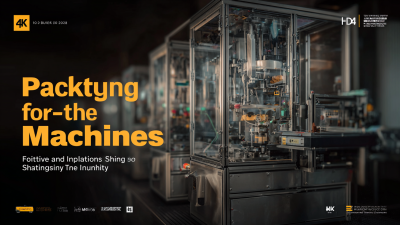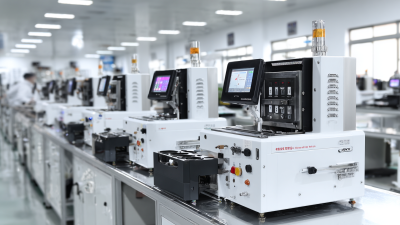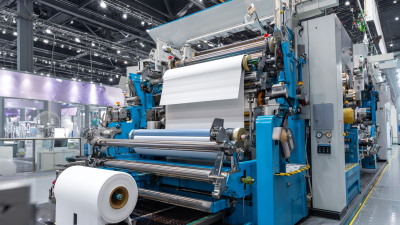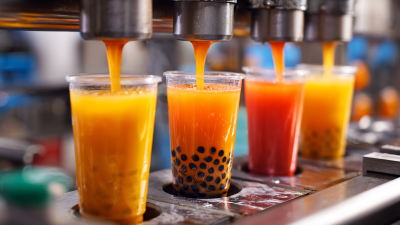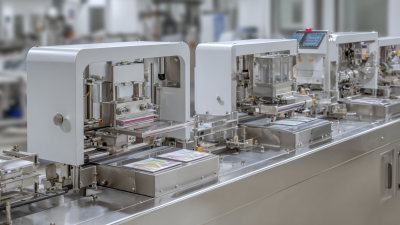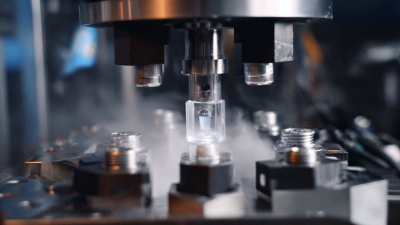Leave Your Message
In the evolving landscape of manufacturing and distribution, the "Machine For Packaging" is poised to play a pivotal role in advancing sustainable practices across industries. According to a recent report from Smithers Pira, the global sustainable packaging market is projected to reach $500 billion by 2027, reflecting a CAGR of over 6% from 2022 to 2027. This surge in demand underscores the necessity for innovative packaging solutions that not only meet consumer expectations for sustainability but also adhere to stringent regulatory standards. Moreover, the integration of emerging technologies like IoT and AI within packaging machinery is enhancing efficiency and reducing waste, with projections indicating a potential 20% decrease in material usage by employing advanced packaging systems. As businesses strive to align with environmentally responsible practices, the future of "Machine For Packaging" becomes crucial in driving the industry's transition towards a more sustainable and circular economy.
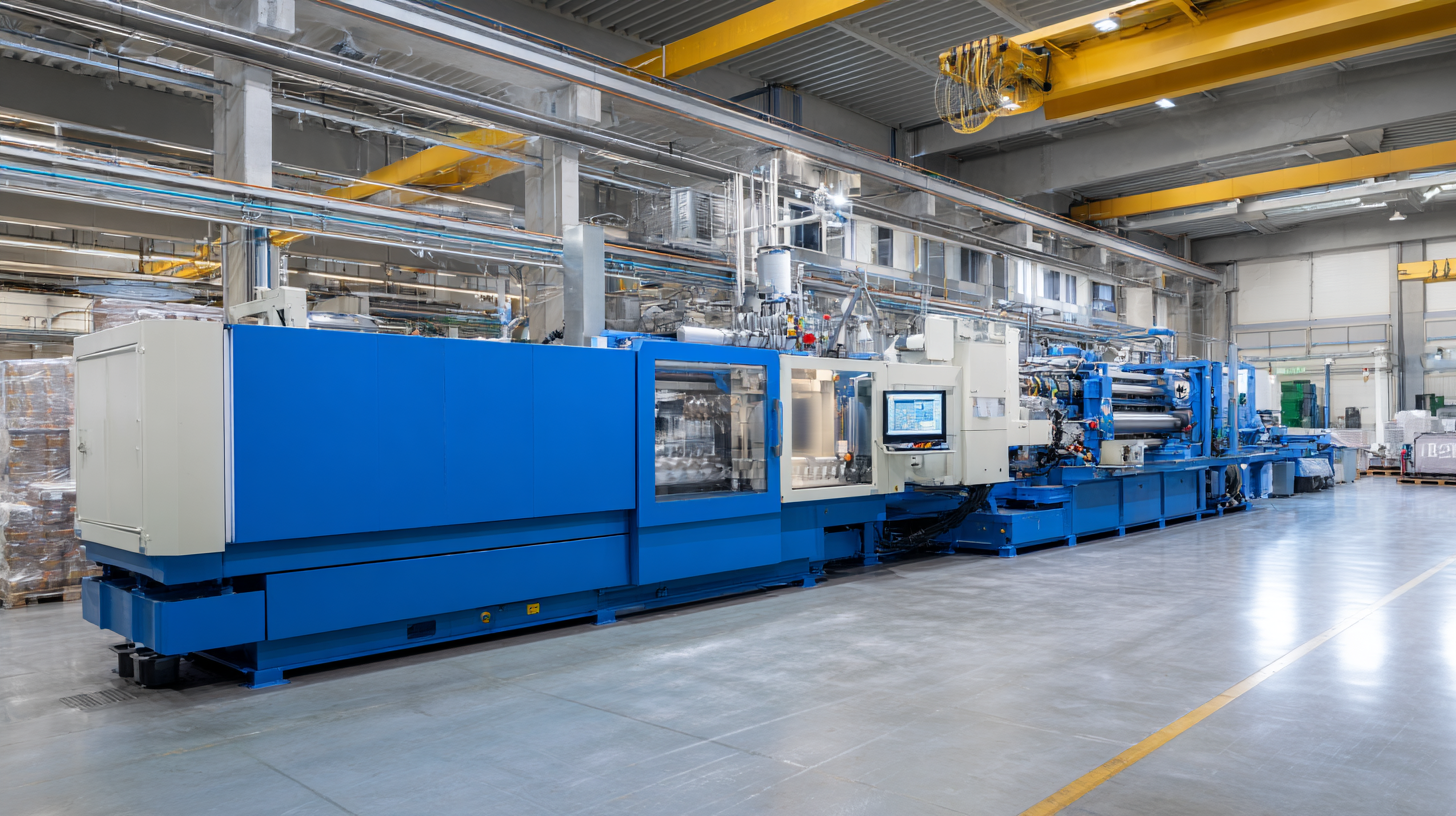
The integration of sustainability into packaging technology is reshaping the industry, with innovative solutions emerging to address pressing environmental concerns. Recent market analyses indicate that the AI in packaging industry is experiencing significant growth, driven by advancements in machine learning, computer vision, and predictive analytics. The demand for smarter packaging solutions is expected to reach USD 20 billion by 2027, with sustainability at the forefront of this transformation. Companies are increasingly leveraging these technologies to optimize supply chain efficiency while minimizing waste.
In this dynamic landscape, major players are unveiling novel approaches to enhance the recyclability of their packaging. For instance, leading firms are developing materials that not only meet durability standards but are also easily recyclable. Reports from industry events highlight breakthroughs in large-format packaging, where innovations are focusing on creating lightweight, sustainable options without compromising on performance. Technologies such as natural language processing are also being implemented to interpret consumer feedback and improve packaging designs, thus fostering a circular economy in the packaging sector. As these trends continue to evolve, the fusion of sustainability with advanced machine technologies will likely redefine industry standards for years to come.
As industries push towards sustainability, smart machinery is at the forefront, harnessing the power of AI and IoT to revolutionize eco-friendly packaging. By integrating these advanced technologies, companies can minimize waste and enhance efficiency, paving the way for a greener future. Smart machines equipped with AI algorithms can analyze material usage and predict optimal packing processes, ensuring that resources are utilized more efficiently, reducing the carbon footprint associated with manufacturing and logistics.
Tips for Implementation: Start by evaluating your current packaging processes and identify areas where AI can contribute. Small adjustments, such as automating inventory management or leveraging predictive analytics to optimize supply chains, can lead to significant sustainability gains over time. Additionally, consider collaborating with technology providers who specialize in eco-friendly packaging solutions—partnering can accelerate your transition to a more sustainable operation.
Moreover, Internet of Things (IoT) devices can continuously monitor the production process, providing real-time data on energy consumption and waste generation. This actionable insight helps companies make informed decisions that align with environmental goals. By being proactive in data analysis, businesses can implement changes that enhance their sustainable practices.
Tips for Data Utilization: Utilize IoT platforms to create digital twins of your packaging processes, allowing for simulations and scenario planning. Regularly analyze the collected data to spot trends and make iterative improvements, ensuring your operations remain as eco-conscious as possible. Engage your team in these efforts, fostering an organizational culture that prioritizes innovative and sustainable practices.
The integration of automation in packaging operations is transforming the industry, particularly in the realm of waste reduction. Companies are increasingly leveraging advanced technologies, such as machine learning, computer vision, and IoT connectivity, to streamline processes and minimize material usage. For instance, automated packing solutions like made-to-measure boxes and precise bagging machines allow for a significant decrease in packaging waste, ensuring that products are shipped in optimal-sized containers that eliminate excess material.

As seen in recent initiatives, major players are actively pursuing automation to tackle packaging waste. Automated machinery is being deployed to enhance efficiency in packaging processes, reducing reliance on excess resources. Furthermore, the estimated growth of the automated packaging solutions market underscores the industry’s shift towards more sustainable practices.
Innovations in automation not only enhance operational efficiency but also contribute to broader environmental goals, including minimizing the ecological footprint of packaging operations. This paradigm shift indicates a robust future for automated solutions in the packaging sector, emphasizing sustainability as a core objective.
The evolution of packaging systems is increasingly centered on sustainable materials that align with environmental goals. The demand for eco-friendly alternatives has catalyzed innovation in the production processes of packaging machinery. Companies are now investing in research and development to create machines that not only use biodegradable materials but also operate with minimal energy consumption. This shift toward sustainability is not just a trend; it represents a crucial response to the global need for reducing waste and carbon footprints associated with traditional packaging methods.
The adaptation of packaging machinery to accommodate sustainable materials requires a rethinking of design and functionality. For instance, technologies that enhance the efficiency of using plant-based plastics or recycled fibers are becoming vital. Packaging systems must also be flexible enough to handle different types of sustainable materials without compromising on quality or durability. As manufacturers embrace these changes, they set the stage for a packaging revolution that prioritizes both functionality and environmental integrity, ultimately shaping a more sustainable future for the industry.
As the shift towards a circular economy gains momentum, the design of packaging machinery is evolving to align with sustainable practices. The European Union's commitment to creating a cleaner and more competitive environment underscores the urgency of adopting circular economy principles in packaging. This approach not only emphasizes recycling and reuse but also necessitates the rethinking of how packaging is manufactured. The integration of real-time data in packaging processes is critical, enabling brand owners to comply with evolving Extended Producer Responsibility (EPR) regulations while simultaneously driving sustainability efforts.

Artificial intelligence plays a pivotal role in enhancing sustainable packaging design by leveraging data analytics to optimize resources and improve material recovery. Traditional methods are being replaced with intelligent solutions that provide insights into consumer behavior and environmental impacts. Moreover, the transition to sustainable packaging solutions is particularly evident in industries like coffee, where consumers increasingly demand eco-friendly options that support a circular economy. Innovation in machine design that prioritizes these principles will not only meet regulatory demands but also foster a market environment where sustainability becomes a core value among brands.
